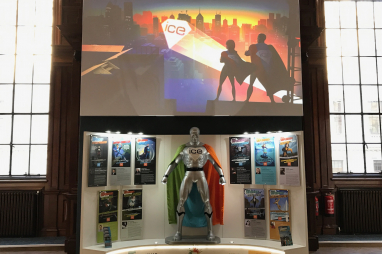- The 25 Best Air Force basketball 1 Colourways of All Time , IetpShops , Nike Swoosh logo embroidered fleece shorts
- nike air force with skinny jeans girls , Manor PHX – Cheap Ietp Jordan Outlet , Premium Footwear & Streetwear Boutique
- Роздільний купальник adidas раздельный купальник
- NIKE AIR JORDAN 1 GOLF LOW RUST PINK , IetpShops , Russell Westbrook Nike jordan 1 flight 4 premium кроссовки мужские Northern Lights All Star
- Nike Giannis Immortality 3 - Nike Jordan Sport DNA Svarta mjukisbyxor i fleece med heltäckande logga - RvceShops
- eastbay restock large amount air jordans
- Air Jordan 1 Satin Black Toe CD0461 016 2019 Release Date 4
- nike air force 1 boot cordura black wheat university gold do6702 001
- air jordan 1 retro high og university blue 555088 134
- air jordan 4 og fire red DC7770 160 release details price
- Home
- News and analysis
- Info hubs
- Events
- Video
- Case Studies
- About us
- Magazine
- Advertising
Produced for the industry by the Association for Consultancy and Engineering
News
More than half of adults don't know what civil engineers do, survey says

Two hundred years on from the Institution of Civil Engineers (ICE) being founded, new research has found there to be a worrying lack of general awareness of what civil engineers do and an ever-increasing skills gap that needs to be plugged.
Research collated by ICE has revealed 55.1% of adults don’t know what a civil engineer does, while just 36.5% of those surveyed could identify a civil engineering project in the UK. The data couldn’t be timelier as the institution is preparing a bumper year of events to celebrate ICE’s 200th anniversary. This year, ICE 200 will highlight the significant positive impact that civil engineers have on people’s lives.
President of ICE, Robert Mair said: “It was Christmas Eve in 1817 when three engineers met to discuss the possibility of an engineering institution, which they then founded as the Institution of Civil Engineers on 2 January 1818. Two hundred years on, we have an increasing skills gap and lack of general awareness of what civil engineers do. To overcome that and illustrate how civil engineers transform lives, with projects such as the Broadland flood alleviation in Norfolk, and improvement of communities by social building, such as the Connswater Community Greenway in Belfast, we will mount a year-long information programme to make sure people understand the impact that civil engineers make. ICE 200 will be a celebration of the people and projects that are changing our world to raise the profile of a profession that can be invisible to the majority.”
The perception survey conducted by ICE, in conjunction with TLF, had a sample size of 1,000 adults and a second group of 1,000 young people. The second group of young respondents revealed 65% of people did not know what a civil engineer does. The need for the ICE 200 awareness campaign has been highlighted by the research results which indicate the majority of the UK population would struggle to identify what a civil engineer does or know what qualifies as a civil engineering project.
Director general of ICE, Nick Baveystock said: “We see ICE 200 as an opportunity to communicate to the public the major positive impact civil engineers have on people’s lives. To do this we have planned a series of activities that will engage directly with the public and help them to understand the ways civil engineering transforms their lives and safeguards their families’ future. Throughout the UK and across our worldwide offices, we will be organising walking tours of significant projects in local areas, engaging with local groups to share the importance of the profession, and trying to find new and interesting ways to explain civil engineering to the public. Through the year-long programme we hope to really help the public understand the impact of civil engineering.”
A list of the events that will make up ICE 200:
- Pitch 200: ICE's competition to find the person who can best demonstrate a civil engineering-related concept or project in a 200-second video. Applicants will be invited to make their entries as engaging and dynamic as possible and the use of props is highly encouraged.
- Café 200: A programme of engineering talks for existing coffee morning groups that aims to widen exposure to the public – particularly parents and carers – and society as a whole.
- Explore Engineering: A series of walks, tours and trails aimed at inspiring young people to consider civil engineering as a career and shout about how civil engineers transform lives for the better. The programme will mix current projects with the rich heritage of infrastructure.
- Invisible Superheroes exhibition: A year-long exhibition at One Great George Street, showcasing engineering projects from around the world that have improved people's lives and the unsung heroes behind them. Using state-of-the-art technology, from augmented reality to virtual tours, the exhibition will bring to life projects that span the globe and demonstrate the full range of civil engineering’s reach and effect.





